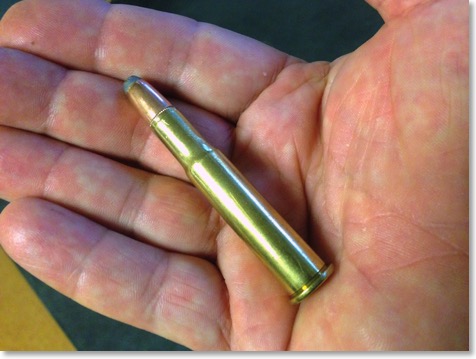Have you thought about what happens AFTER your defensive shooting?
Many people don’t understand that their defensive shooting incident will have lasting repercussions — and not just for the bad guy.
The defensive firearms world is one laced with testosterone and bravado. I’ve lost track of the number of times, just in the last couple of months, where I’ve encountered someone who possessed a decidedly comic book understanding of the use of deadly force.
“Better to be tried by twelve than carried by six”, they’ll proclaim. Some of them have signs or bumper stickers that say things like “We don’t call 911” or “The response time of a bullet is 1,000 feet per second.” The worst of them will see a news report of a crime in their town and instantly become experts in lethal force, telling everyone within earshot how they would have handled the “punk”.
Firearms are, after all, manly things — and men don’t cry. Or so they believe.
The reason I mention this is to prime you for a quick discussion of what really happens after you’ve shot someone in order to protect your life or the life of your loved ones. Watch the video at this link, featuring a story about a homeowner who shot an intruder — and what it meant to him after the fact.
Most of us would watch that and conclude that Gareth Long was well within his rights to shoot the intruder in his home. The grand jury certainly concluded that to be the case when they returned “no true bill” on the incident, which meant that it was a legitimate self defense shooting and excusable within the law.
You’d think that would be the end of things, but as you can see it wasn’t.
If you’re a gun person (like I am, and like just about everyone in the training business is) and regularly hang out with gun people you probably have a skewed perspective about how the rest of society views guns and the use of deadly force. I’ve met many people who work in one of the professions who are very careful not to let neighbors, friends and colleagues know about their gun ownership lest they be branded as a dangerous nutcase.
Imagine, then, what those same people will think when your gun is used to justifiably kill another human being. That’s what Gareth and his wife Lacy have faced ever since the Christmas eve he was forced to shoot a drug-addled man inside of his own home. Massad Ayoob has talked about this “mark of Cain syndrome” for years, and though he’s often been criticized and derided by the more macho members of our fraternity what he says is all too true: the person who kills another person will be looked at differently by the people he knows, and by society at large. That can be devastating to some people.
How would you deal with your friends turning their backs on you, with people in your community avoiding eye contact or asking that your kids not come over to play with theirs? These are very powerful tools cultures have for enforcing societal norms, and many people like the Longs have faced them for having protected themselves using lethal force.
This is an unpleasant discussion, to be sure, but these are the things you’ll need to think about as you train and prepare to defend yourself should the unthinkable happen to you. How will your neighbors react? Will they slap you on the back and thank you for ridding the neighborhood of one more bad guy, or will they — as in the Long’s case — shun you and hold you responsible for killing someone they went to high school with?
I don’t have easy answers, and I’m not sure there are any. If you are someone of religious faith you might seek solace in prayer and worship, but even in your religious community you may face unspoken scorn. Still, that level of faith seems to be a source of strength for many people. It might help you to find out what your denomination says about self defense and the taking of another human’s life in defense of your own, and use that knowledge to help bolster your faith.
Those of you who are not of a religious persuasion can take strength from a strong belief in your own right to exist. If you don’t believe, at your very core, that you and your spouse and your children have a right to your own lives, it will likely be much more difficult to weather the storm of criticism you might face. This belief is a good start on building the fortitude to deal with these issues, and it’s the same belief that you should have before you purchase that defensive firearm. (I’ve said before that without it, you’re probably less likely to use lethal force even when it’s warranted.) The notion that your life is worth protecting is what, at some level, led you to acquire that defensive tool — now let that belief help to shield you from the criticism of others who haven’t been in your position.
The toll that a defensive shooting takes, both financially and psychologically, can be immense. The financial aspects can be dealt with through some sort of self defense insurance, but the mental ones are more difficult. Start today by thinking about what you’d do not just when faced with a threat, but when faced with the disapproving looks of your friends and neighbors.
If this sounds uncomfortable, imagine what the real thing would be like.
-=[ Grant Cunningham ]=-
- Posted by Grant Cunningham
- On December 16, 2014



